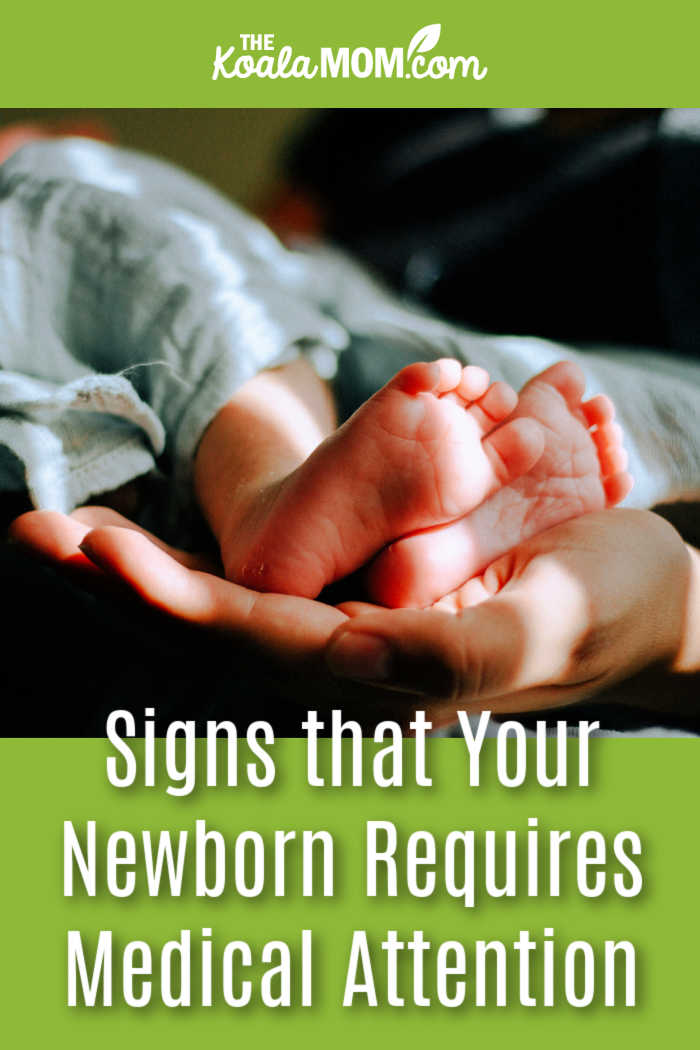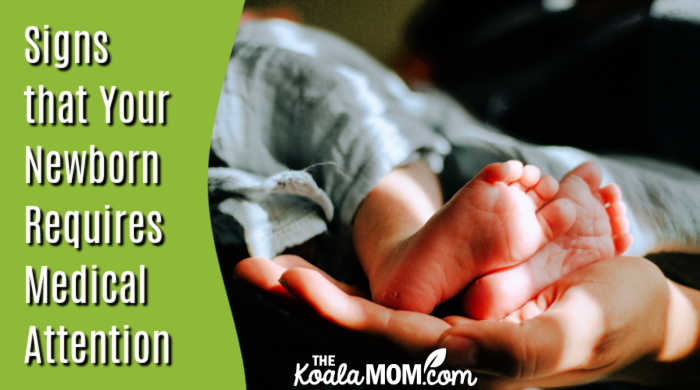Bringing a newborn baby into your family is a thrilling yet sometimes daunting journey. As a new parent, you may feel anxious about your little one’s health and safety, especially in those early weeks. While many newborn concerns are just part of the package, there are some signs you should pay attention to. Knowing what to check for can empower you to act swiftly and ensure your little one receives the necessary care.
According to the National Institutes of Health, neonatal danger signs indicate serious health issues. These issues can affect newborns during their first twenty-eight days of life. Globally, these signs are recognized as being associated with various health complications.
This guide will highlight the essential warning signs that might indicate your newborn needs medical attention. You can feel more at ease and ready as you embark on this exciting new phase of parenthood.

High Temperature
A high temperature in a newborn is something you shouldn’t overlook. MedlinePlus states parents are scared when a baby or infant gets their first fever. Most fevers are harmless and result from mild infections. However, if your newborn’s fever exceeds 100.4°F (38°C) when measured rectally, you should contact their healthcare provider.
Newborns are not as good at regulating their body temperature as older kids, so even a slight fever could indicate an infection. You might notice your baby feeling warm to the touch, sweating, or being fussier than usual.
Sometimes, a fever is the only sign that something might be wrong. Avoid trying to treat a high temperature at home. You must bypass home remedies and contact your doctor. Acting quickly can make a difference, so seek medical advice if you are concerned about your baby’s temperature.
Rapid Breathing
Rapid breathing in a newborn is something to take seriously. Children’s Hospital of Philadelphia notes that a newborn’s breathing rate should not exceed 60 breaths per minute. Since newborns have irregular breathing, count their breaths for a full minute. There should not be any gaps longer than ten seconds between breaths.
If you notice your little one breathing much faster, it is crucial to get medical help immediately. You might even see their chest pulling in with each breath, their nostrils flaring, or a bluish tint around their lips or face. These are all signs that your baby might not be getting enough oxygen.
Rapid breathing can stem from infections, lung issues, or even heart problems, and newborns can decline quickly. Don’t just wait to see if things get better on their own. If you are concerned about how your baby is breathing, head to the emergency room. Acting quickly can make a difference in keeping your baby safe.
Diarrhea or Vomiting
A newborn with diarrhea or vomiting is pretty alarming. Babies can get dehydrated fast, so if your newborn has frequent, watery stools, it is time to consult your family doctor or pediatrician.
You can get also help from a neonatal nurse practitioner who is an expert in newborn care. Nurses with this specialty acquire knowledge and skills through neonatal NP programs. They provide compassionate care for both healthy neonates and high-risk newborns.
Baylor University states that neonatal nurses gain in-depth expertise in diagnosing and treating intricate medical issues for newborns up to 24 months old. They can handle sophisticated medical equipment and achieve positive patient results. If you cannot access a family doctor or pediatrician, look for a neonatal nurse.
Diarrhea or vomiting can sometimes stem from an infection or feeding issues, and it is always better to be cautious. You must get medical advice, especially if you notice blood in stool or vomit or if your baby is not interested in feeding. Immediate response can help avoid complications and keep your baby feeling good.
Skin Color Changes
Changes in your newborn’s skin color can indicate that something might be off and could need immediate medical attention. According to UNICEF, warning signs to watch out for include any noticeable changes in skin color. A yellowish or bluish tint can be a sign of concern.
If your baby’s skin turns blue or gray, it could mean they are getting insufficient oxygen. This is a medical emergency. Jaundice, which causes yellowing of the skin and eyes, is fairly common in newborns. But if it appears within the first 24 hours, it can escalate quickly. If your baby seems unusually drowsy and hard to wake, it is crucial to connect with your doctor.
Pale or very mottled skin can indicate poor circulation or a potential illness. A baby’s skin color looking off or changes suddenly seeks immediate attention. You must ensure your little one gets the appropriate treatment.
Persistent Irritability
Persistent irritability in a newborn, like crying or fussiness that does not ease up is a warning sign you should not overlook. While it is normal for babies to cry, especially in those first few weeks, ongoing irritability could indicate something more serious. It can be an infection, pain, or another health concern.
For example, one of my friends had a difficult labour. Her baby seemed unusually fussy for the first week of her life. The mom persisted in asking her doctor about her baby’s fussiness, and the week-old baby was finally diagnosed with having broken her collar bone during birth. No wonder she was fussy!
If your baby is crying uncontrollably, has a high-pitched or unusual cry, or seems impossible to calm down, contact your pediatrician. It becomes even more urgent if the irritability comes along with symptoms like poor feeding, vomiting, fever, or changes in alertness.
Nobody knows your baby better than you do. If their irritability feels different from their usual cries, seek medical advice to ensure they are okay.
FAQs
What is the most critical time for a newborn?
The first 28 days after a baby is born, known as the neonatal period, are incredibly important. During these initial four weeks, infants experience rapid growth and development, but they also face the highest risk of serious health issues. You must monitor them and ensure they receive prompt medical attention when needed.
What is considered a high-risk newborn?
A high-risk newborn is a baby who faces a higher likelihood of health problems or complications. This category includes infants born prematurely or babies who arrive with health issues due to infections or complications during delivery. These little ones often need specialized care in a neonatal intensive care unit.
When should you bring a newborn to the hospital?
Take your newborn to the hospital if they have a fever higher than 100.4°F (38°C), are breathing rapidly, have a bluish or grayish skin tone, or have diarrhea that won’t stop. It is also crucial to get urgent care if your baby seems overly irritable or if you notice any other worrying symptoms.
Trust Your Mom Instinct
Our society seems generally distrustful of emotions, but it’s very important as a mom to tune into your gut feeling. I share this information not to worry with you possible health problems for your child, but to help you be prepared should you need this information. Knowledge helps us know when something is normal and when something is not and requires attention.
However, your gut instinct is often your best indicator of whether there is a problem or not. I am not usually an anxious person, but more than once, I’ve felt a gut-level anxiety over something minor in one of my children. My brain tells me that the symptom is minor and will likely go away on its own, but my body tells me something else, and I’m so glad I’ve listened to my body and gone to the doctor (despite how inconvenient that is). Each time my body was right and my child needed that extra care.
Our society also devalues moms, but you are the expert on your child. You know your child better than anyone else in your child’s life, because you carried your baby for nine months in your womb and spend the most time with them. Your doctor is an expert in certain areas, but he is not an expert on your child; you are.

Figuring out when your newborn needs medical help can be confusing. But remember, your instincts as a parent are strong, and trust them. Every baby is different, so if something feels off it is always a good idea to call your doctor or head to the hospital.
Instant responses can make a difference in your baby’s health and recovery. Your attentiveness and prompt action are crucial for keeping your little one safe during those fragile first weeks of life.

No Responses Yet